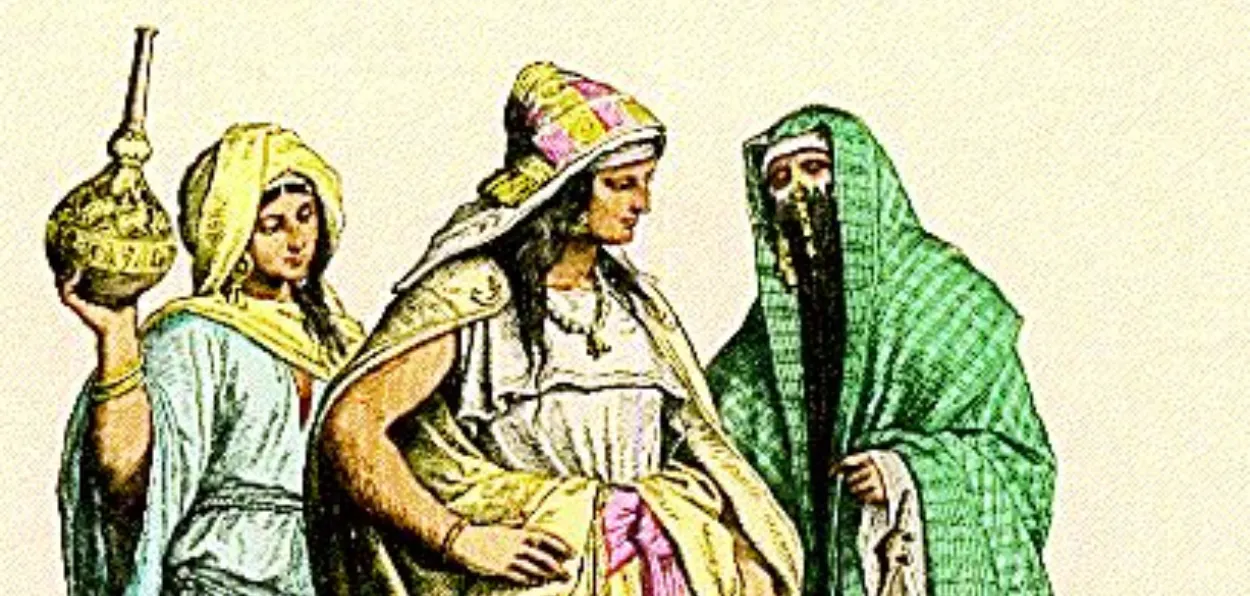
Zeb Akhtar
Sixth-century Arabia, where women's lives were confined to the four walls of their homes, and there was no thought of education or freedom. At such a time, a woman emerged who didn't compromise with the circumstances, but rather transformed them.
She was Khadija bint Khuwailid, who, after the death of her first husband, not only took over his business but also became the most respected businesswoman in Mecca. With the same confidence, she proposed marriage to the Prophet Muhammad bin Abdullah.
In a society where women's voices were often silenced, Khadija not only raised her voice but also earned respect and became an influence. Her story demonstrates that true entrepreneurship isn't just about building a business, but also about breaking down the barriers of one's own circumstances and mindset.
Moreover, Khadija bint Khuwaylid's life is more than just a source of strength and a lesson for today's Muslim women in India. Let's understand how.
An example of self-reliance
Khadija took over the family business after the passing away of her father, Khuwaylid. Her camel caravans travelled from Mecca to Syria, Yemen, and Basra, dealing in spices, textiles, perfumes, and grain. She was known for her honesty and efficiency among her agents. The historian Ibn Sa'd writes, "If any name was a guarantee in the Meccan market, it was Khadija's."
In the Indian context, Khadija bint Khuwaylid remains a symbol of strength and inspiration for Muslim women even today. Her story demonstrates that self-reliance is not a modern concept, but rather, it is deeply rooted in our traditions.
Today, when Nazreen Banu from Kerala is making a name for herself in spice exports, or Shaheen Munawar from Aligarh is bringing employment to every household through Iqra Designs, they are a reflection of the same legacy that began centuries ago in the streets of Mecca.
Khadija was considered one of the most trustworthy merchants of her time. She never resorted to deceit or pretence in her dealings. Her philosophy was clear: “Be truthful in your dealings, and blessings will follow.”
This same honesty attracted the young Muhammad, who was also renowned for his uprightness and integrity.
The trait of honesty and integrity marks the business of Indian Muslim entrepreneurs like Rukhsana Habib of Hyderabad, who started an online business, "True Traders," where she follows "trust over trend" as her brand principle.
Similarly, Hina Ahmed from Lucknow's bakery brand, "Hina's Home Bites," has become a symbol of not just taste, but trust—because she prioritises purity and transparency for every customer. These stories share the same lesson Khadija taught—"Reputation is the real capital."
The most remarkable example of Khadija's foresight was her appointment of the young Muhammad as the leader of her trading caravan. This was not merely a business decision, but a testament to her profound insight. She saw talent in terms of ability, not gender. And this partnership later blossomed into a spiritual revolution that changed the course of the entire world.
And it's not surprising that some contemporary women in India are living this same vision. Like Minha Rashid of Kerala, who started a cooperative called "Threads of Hope," where more than 200 local women are becoming self-reliant by making handicrafts.
Minha says, "More than profit, we are building confidence." Khadija shared this same vision: true leadership is about uplifting others.
Khadija invested a large portion of her profits in helping the poor, orphans, and widows. According to historians, she provided financial support to hundreds of families in Mecca during difficult times. And when the Prophet faced social boycott, she invested all her wealth in that struggle. Today's "social entrepreneurship" is a modern expression of this thinking.
Sana Khan of Delhi started a venture called "Mother's Basket" where rural women produce organic food, and a portion of the profits goes towards children's education. This is the same philosophy - Profit with Purpose.
Struggle, balance and patience
Khadija's life was full of struggles - the death of her husband, the responsibility of business, social criticism, and then the economic ostracism of early Islam.
She never gave up. She made her home a centre of support, boosted the morale of the Prophet, and, with her economic understanding, strengthened the foundations of the new society.
Today's Indian Muslim women display the same spirit as they balance work, family, and social expectations. Indeed, a woman's true strength lies in her patience and direction.
Khadija al-Kubra was the first woman to believe in Islam, but more than that, she is considered the world's first documented businesswoman. Her inspiration is not limited by borders or religion, but rather an example of humanity and self-reliance.
Today, Muslim women in India are making their mark in every field, from clothing to technology. Examples include Fatima Bano of Mumbai, who teaches women coding through "TechForHer," or Afreen Sheikh of Jodhpur, who runs a startup in biofuel production. Khadija's legacy breathes in all of their stories. Their lives teach us, "Success achieved with faith and morality is true success."
Khadija in the eyes of the scholars:
When Prophet Muhammad showed honesty in his business dealings, Khadija began to entrust her dealings to him. - Ibn Hisham
Khadija was one of the few women in Mecca who not only owned capital but also had a say in every partnership. Her every transaction was based on faith. - Ibn Ishaq
Half of the caravans leaving Mecca bore the name of Khadija. Their trade extended to Syria, Yemen, and Egypt.- Al-Tabari
Khadija treated her employees with justice and compassion. She considered profit a means of helping others.- Al-Maqrizi
Khadija's business vision was so clear that even today's business models can learn a lot from her. -Muhammad Hamidullah
ALSO READ: Sahil Agha revived storytelling among the elite
Khadija's greatest legacy was that she placed ethics at the centre of business. For her, success was synonymous with trust and responsibility. -Dr. Tariq Ramadan
